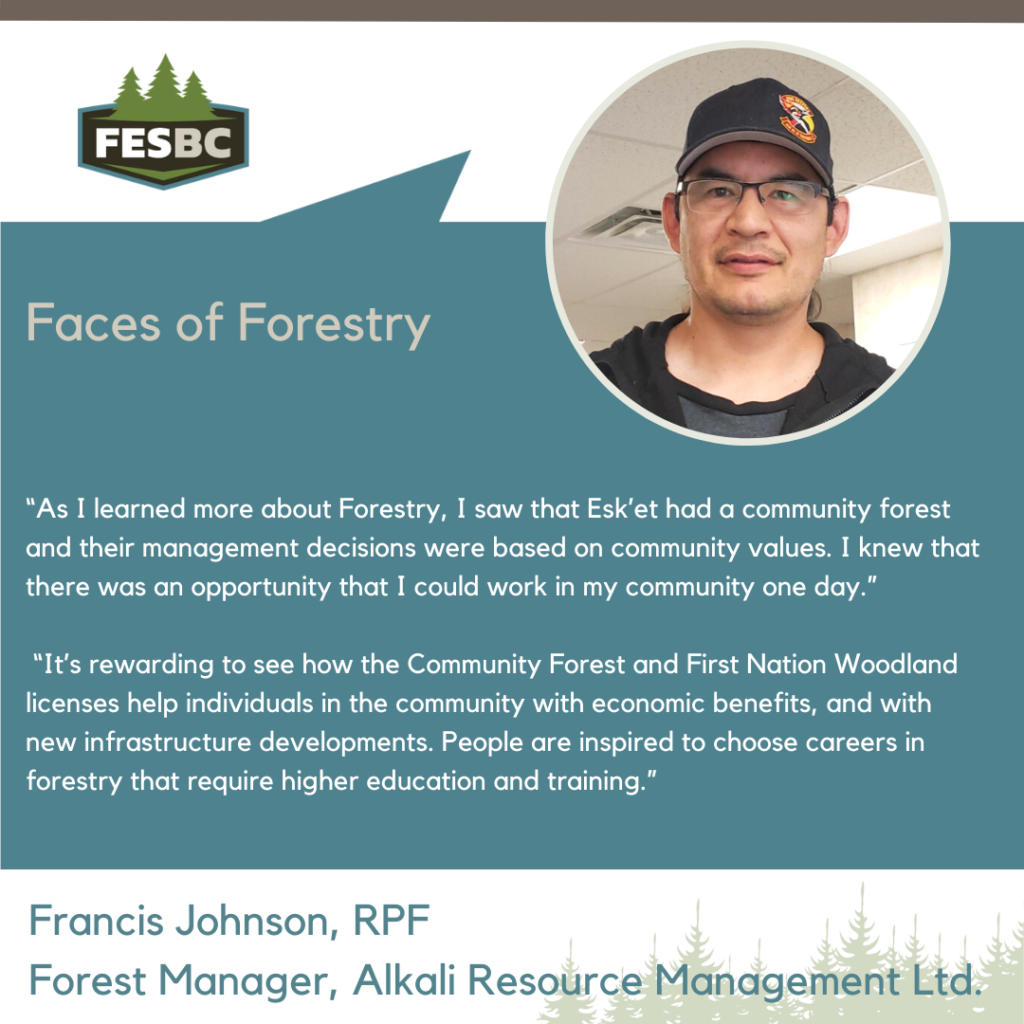Faces of Forestry: Francis Johnson
Faces of Forestry is a newer initiative of the Forest Enhancement Society of BC (FESBC), to highlight people doing great work to enhance our forests throughout British Columbia. This month, we feature Francis Johnson, RPF, Alkali Resource Management Ltd. (ARM), Forest Manager.

Francis was first drawn to joining the forestry industry after witnessing how community and forestry were dependent on one another; and how critical this relationship is to enhance a community’s living conditions and natural resources.
“As I learned more about Forestry, I saw that Esk’et had a community forest and their management decisions were based on community values. I knew that there was an opportunity that I could work in my community one day.”
Johnson then completed his Bachelor of Natural Resource Management in Kamloops at Thompson Rivers University.
“I encourage people to consider careers in forestry. We have a diverse industry with several areas of expertise, so there is work that suits different personality types and skill sets,” said Johnson.
Francis is the Forest Manager at ARM, a forestry company centred on providing numerous forest management services, such as timber development, road construction, wildland fire suppression, and more.
Since 2011, ARM has worked closely with BC Wildfire Services, deploying fire suppression crews across the Cariboo region.
For the last couple of years, Francis has worked with FESBC on behalf of ARM in Alkali Lake. The projects focused on forest carbon efforts through forest harvesting activities undertaken by the First Nation, wildfire risk reduction treatments adjacent to communities, and habitat improvement in the Esk’etemc community forest and First Nation Woodland License.
As a Registered Professional Forester, Francis believes that community voices and values must be factored in, when managing the land.
“It’s rewarding to see how the Community Forest and First Nation Woodland licenses help individuals in the community with economic benefits, and with new infrastructure developments. People are inspired to choose careers in forestry that require higher education and training,” said Johnson.
